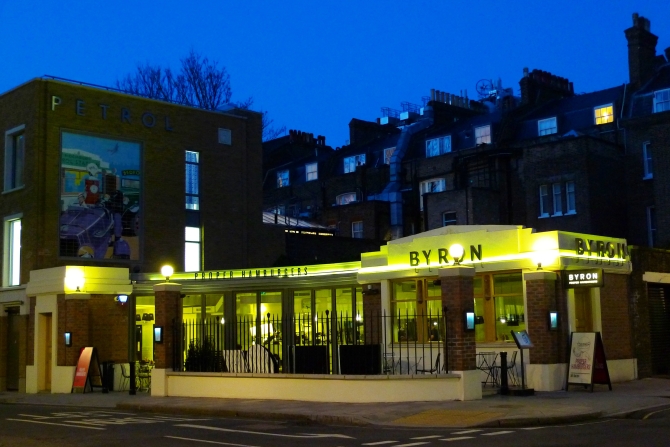As the economy continues to improve and inflation remains on a downward trend, consumers are increasingly finding more cash in their pockets to spend on luxuries such as eating out.

This has proved immensely profitable for restaurant businesses such as London-based ‘proper’ hamburger brand Byron, which has this week announced an ambitious new expansion programme.
Directors at Byron have revealed plans to open a minimum of ten new restaurants per year for the foreseeable future, each of which will follow the “shabby chic” format – frequently utilising interesting empty properties- that has proved popular with its clientele.
At present, the chain operates 44 restaurants in London and the South East, yet this expansion programme will largely focus upon locations outside of the capital city as a means of ensuring the burger brand becomes a national success.
Although such rapid expansion may seem like a huge gamble in what is becoming a relatively crowded market, Byron executives are confident that the venture will prove a success.
In a statement, they said; “The UK casual dining market and in particular the premium hamburger segment in which the company operates is becoming increasingly competitive through the introduction of new entrants as well as the expansion of established players.
“The directors believe that the quality of Byron’s offer sets it apart from the competition and will ensure that with continued focus the company will perform well and meet its growth objectives.”
This feeling of confidence is certainly not misplaced, as during the past financial year to the end of June 2014 sales rose by a third to £55.3 million. In addition, pre-tax profits climbed by an impressive 26 per cent to £5.6 million, reflecting the favourable consumer climate and the growing demand for upmarket versions of traditional “street food”.
London has become something of a hub for restaurant start-ups, many of which are now beginning to expand nationwide after establishing a loyal following in the capital. Some, such as Gourmet Burger Kitchen and Five Guys, are especially focusing upon growth in new shopping and leisure developments in regional areas, while others including Dirty Burger and Shake Shack continue to seek growth in stand-alone establishments with greater opportunities to put across their own styles.
Byron, which was established in 2007, has already begun to court nationwide prestige, with four of the chain’s ten new openings last year located outside of the M25.
Yet this nationwide expansion is expected to accelerate significantly from this year forward as new owner, private equity firm Hutton Collins which purchased the brand for £100 million, seeks to emulate major players in the gourmet burger sector.
Previous Post
Anniversary upgrade planned for historic Grainger Market